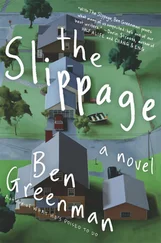I will tell you a story that would embarrass a different sort of woman. The night before Lily and I left the city, I opened the window of my apartment and let her put her head out. Her hair was long and black and difficult to manage, in the fashion then popular in the city. I took my business with her then, just like that, with her head out of the window. “When we get to the country,” I remember saying to her, “we will do this again, near a country window, and the air that you breathe will be new air. A little death, a little rebirth: Is this not what you want?” I cannot describe the expression she wore as she listened to me, mainly because I could not see her face, which was outside the window. The next day, on the train, her face was once again concealed from me. This time it was beneath a blanket I had draped over my lap. The conductor’s curiosity did not recommend him.
At any rate, my dear wife, my memory of these clarifying moments caused me to walk faster along the path. I passed a stable that contained no horses but was rich with the promise of them, and then I passed a house in which I imagined country folk eating a hearty meal and exchanging simple tales of life and its triumphs and disappointments, and then I passed a lake upon which a swan drifted in silent judgment of any place less beautiful. Finally, I overtook Lily, who was huffing and puffing, trying to tug the suitcase through a section of the path that had gone soft from rain. My excitement was mounting, and I made sure she saw so as a form of incitement. She scowled at me to conceal her appetite.
I came to the house, fit the key in the lock, and pushed it open. There was a note on the table in the entryway welcoming us. The note was written on the inn’s stationery, and there were more blank sheets beneath it, along with an envelope. I took the paper and envelope in my free hand and bounded up the stairs. The bedroom was just as Mrs. Pritchard had described it: small, Spartan, with a low table. I set the paper and envelope on the table and went to the window with the leaf I had taken from the path. A leaf contains a world, at least, and I held it there in my hand at the window, watching Lily struggle up the last stretch of path toward the house. She had given up carrying the suitcase and was now dragging it through beds of flowers, some that had recently bloomed and some that would never bloom. She could not see it from ground level, but there was beauty all around her. I twirled the stem of my leaf between my thumb and index finger. She did not see me, as she was not looking up. I let the leaf fall, like an invitation, and it landed in the soft grass just before the porch; as Lily tried to wrestle the suitcase up the stairs, her shoe came down directly upon it. I had given her the shoes — they resemble those I made you wear when we were fully man and wife. The heel pierced the leaf through the heart. It was a kind of murder. At that moment, I decided I would write you an account of the day. I would spare you not a single detail, from the morning train to the events of late afternoon that were about to unfold. I would tell you of Lily’s hot breath, her wide eyes, the parts of her and the whole. I felt the prospect of it all thrum through me, and I undid my shirt and pants, and lay back on the bed, and waited for Lily to arrive.

THERE WERE A BUNCH OF BLIPS, ONE AFTER THE OTHER, BLIP, blip, blip. Rough and strenuous Richard was one; Donzac, deflated, another; the professor who called her “kitten,” less ironically than she thought healthy; Jeff, the architect; Jack, the accounting intern; an outraged Iranian rich boy; a professional football player; a journalist; Louis from the Panhandle; Philip from Toowoomba. When Deborah had counted to ten, she stopped. Ten men had been inside her with varying degrees of success. She had held them, fondled, coaxed, teased, mocked, resented, occasionally admired. Now she was tired. Things weren’t getting better. It was time for it to stop. She boarded a plane to Paris, where she resolved to continue her studies in form and composition. She would learn but not paint, and then return to Miami and paint what she had learned. A friend of a friend had an apartment that needed watching for the summer, a small place off the rue Beauregard, and she unlocked the door and pushed hard with her foot, as she had been told to do. “I am home,” she said, trying not to make it sound like too much of a question.
Boatman, one of the few men who seemed to want nothing more from her than her friendship, was also in Paris, working in medical research. The first week she was there they met for coffee and he told her a story; it seemed incredible, yet he staked his word on it. A research department in a university had shown one thousand men a series of one hundred images. The images were broadly random: some were of trees, some of cars, some of animals, and some showed the faces of attractive women. At first, each image remained on screen for one second. Then the rate of projection was accelerated: each image was shown for only a half second, then a quarter second, then a tenth of a second. Finally the set of images was shown to the men in such rapid succession that each image was onscreen for only one twentieth of a second. At that point, the sequence was altered, the new sequence shown again at the fastest rate, and the men were asked which photograph was out of place. If they were unable to furnish an answer at that rate, the sequence was shown again at a slightly slower speed, and so on, until it was back to an image per second. The vast majority of the subjects showed no ability to answer correctly for the images of trees, cars, or animals, but nearly half the men were able to tell when images of women had been rearranged within the sequence, even at the fastest speeds.
Deborah had heard some fish stories in her day, and this ranked near the top.
“I’ll bring you the magazine with the article,” Boatman said. He pushed his cup of coffee forward as punctuation.
“You do that,” she said, coming to her feet.
While she waited for the magazine, she poured herself into the books about painting she had brought from home. She spent time going slowly through museums. She talked on the phone to her mother more than she had in months. There were no men — there was no man — and that left her time. “We can have lunch every week,” she told Boatman. “I’ll even pay if you bring that magazine you lied about.”
He presented it to her rolled up and rubber-banded. “Don’t read it here at the table,” he said. “It’s rude. Wait until you get home.” They ate. She went home. The magazine, thick and printed in an oversize format, was called Topic: A Month of Things to Think About . She was mortified that she had never heard of it and at the same time thrilled, because she was now permitted the pleasure of discovery, which was considerable. The magazine was a fantastic mix of high-toned reporting, lurid celebrity news, science, culture, home design, and travel. The cover story was about Corrado Feroci, an Italian sculptor who traveled to Thailand in the early twentieth century and created works at the behest of King Rama VI. Then came a piece about the metabolic studies of stressed cells, and then one about an actor who had left his wife for a costar. The print in some of the longer articles was tiny, but Deborah read every word, and when she looked up at the clock, more than an hour had passed. She went right back in for another hour, and called Boatman when she surfaced for dinner. “This is the best magazine in human history,” she said. “I put it down, then picked it back up, and guess what story I landed on?”
Читать дальше













